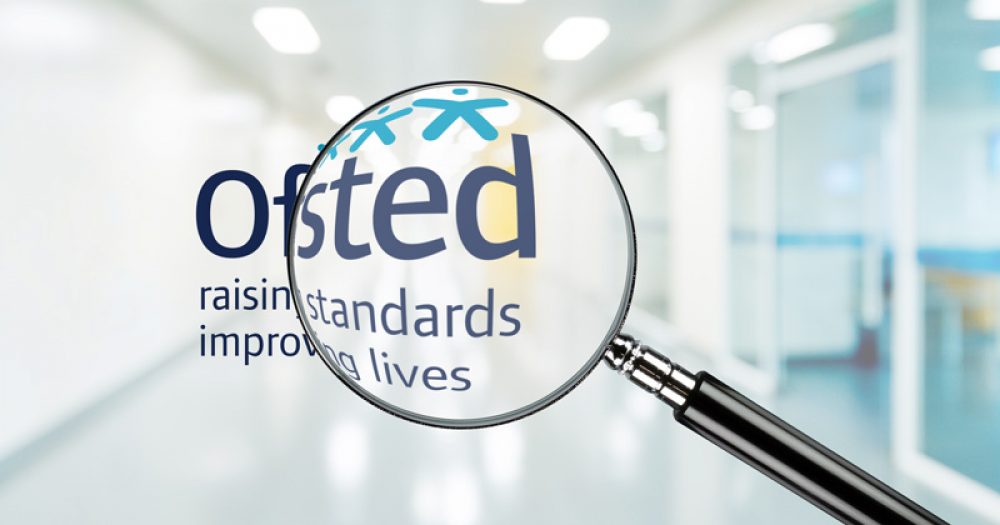An Ofsted director has said there was “little more we could do” to ensure schools were providing home learning during coronavirus closures amid claims vulnerable pupils had been let down.
Speaking at the education select committee today, Yvette Stanley, national director for social care, was asked about claims that millions of pupils have barely had much work at home during closures.
Ofsted was stood down from inspections during the pandemic, and Stanley said the inspectorate’s role was to “support the policy and the message at the time.
In a very difficult situation, it wasn’t clear what were the expectations of schools
“We worked hard to make sure local authorities were getting vulnerable children back and support schools in making sure they were open to as many. There was little more we could do given our very, very specific role.”
Asked what she would do differently if a similar situation happened again, Stanley said a personal view was that “ we would have been clearer about the expectation of schools” on what home learning should be provided. But this would include understanding the “very pragmatic difficulties” such as staffing issues and the availability of online learning.
New figures today by the Office of National Statistics show that 52% of pupils struggled to continue learning at home. Of those, three-quarters of parents said a lack of motivation was a reason.
The education committee heard that 14 per cent of children in foster care had received no contact from their school during lockdown. When pressed on whether this was acceptable, Stanley said: “Absolutely not. I would have expected much more contact with parents.”
But she added many schools has also been “very active in their engagement with parents”.
She said the focus on Ofsted’s new autumn “visits” would be “what can we learn from the best” incase of local lockdowns or further disruption to make sure all schools are “up their with the best possible and regular contact”.
But when challenged on claims 62 per cent of carers had no contact virtually from their school’s headteacher during lockdown, Stanley said: “I don’t think it’s Ofsted’s role to oversee the expectations on schools in the pandemic.”
She said the expectation was the “policy steer was set by national government”.
“In a very difficult situation, it wasn’t clear what were the expectations of schools,” she added. “We’ve seen some schools achieving this really well and some where it hasn’t. Absolutely I wouldn’t want that figure to be repeated in any future event.”
She also reaffirmed that judgments will only be given during autumn visits where there are safeguarding concerns, adding Ofsted has been commissioned in “research space, not inspection space”.
Stanley also raised concerns about the number of teenagers who are self-harming and committing suicide, saying she has seen a “steady flow” of referrals. She said a national panel at the Department for Education is compiling statistics around such issues.
The ONS home-schooling survey, published today, recorded the experience of more than 12,000 people in Great Britain between April 3 and June 7.
It found only one in 10 parents complained about a lack of devices to work on, although this rate double for single-parent households.
The government has been criticised for not delivering all the promised free laptops on time, with Schools Week also first revealing the number provided was well short of the amount schools said they required.
The survey found 5 to 10-year-olds spent 10 hours per week, on average, doing schoolwork. This rose to 16 hours per week for 11 to 15-year-olds.
Just 13 per cent of parents of children aged 5 to 10 said they had used real-time interactive online learning, such as live lessons, which rose to 44 per cent for 16 to 18-year-olds.








This piece really does shine a light on Ofsted’s inadequate response to the pandemic and we shouldn’t be fooled into believing that the inspectorate’s hands were tied by the so-called ‘very, very specific role’ which was supposedly imposed by a ‘national policy steer’.
Months before the lockdown Ofsted was aware that the virus would make its way towards us and that it was most likely that schools would be closed for most children. The inspectorate had plenty of time to risk-assess the situation and plan for supporting schools with home-based learning. It is fundamentally wrong to claim that there was “little more we could do” to ensure schools were providing home learning during coronavirus closures.
Around 200 full-time schools HMI work for Ofsted, at a cost of around £1 million pounds per month, and six weeks into this crisis 90% of these highly paid, highly skilled individuals were still under employed. (https://schoolsweek.co.uk/what-does-an-inspectorate-do-when-it-cant-inspect/).
The stark findings mentioned in this article, which show far too many children were insufficiently engaged in productive learning, did not arise because there was ‘little more Ofsted could do’, they are a direct result of Ofsted not planning effectively for the pandemic and choosing not to support ALL schools with the development and delivery of the covid curriculum.